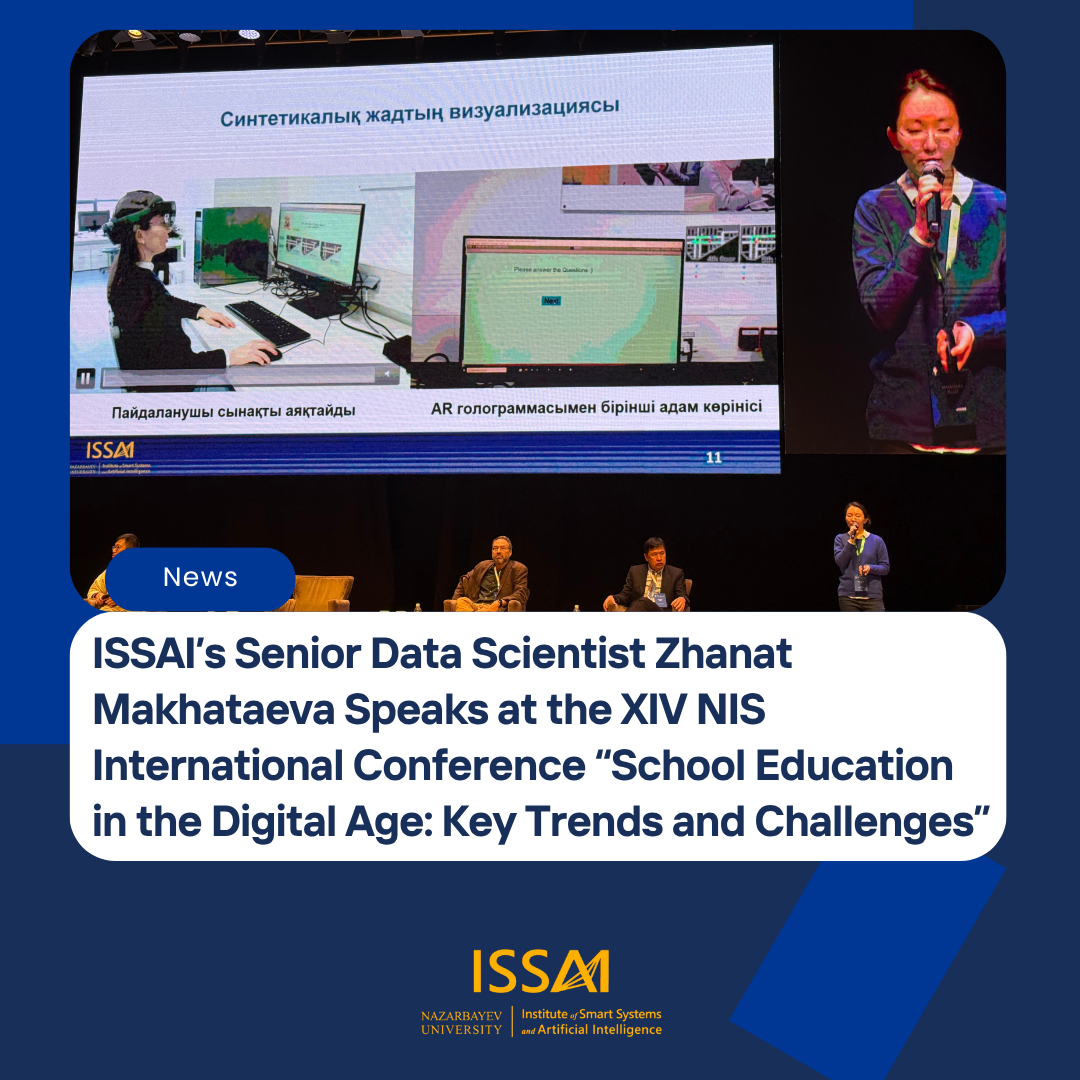On October 30–31, 2025, Nazarbayev University hosted the XIV NIS International Conference “School Education in the Digital Age: Key Trends and Challenges”, organized by Nazarbayev Intellectual Schools (NIS). The conference brought together educators, researchers, and innovators from Kazakhstan and abroad to discuss how emerging technologies are transforming education in the 21st century.
At the panel session “Education of the Future: Technologies and Resources,” Dr. Zhanat Makhataeva, Senior Data Scientist at the Institute of Smart Systems and Artificial Intelligence (ISSAI) at Nazarbayev University, delivered a presentation titled “Avatars, Augmented Reality and Artificial Intelligence in Education.”
In her talk, Dr. Makhataeva introduced the audience to the concept of Augmented Reality (AR) and presented her research on the visualization of safety danger zones around working robots using AR technology, as well as the ExoMem System, which leverages AR and computer vision for detecting and localizing 3D objects in indoor environments.
She also provided an overview of the development of AR and VR technologies, highlighting their applications in Human–Computer Interaction (HCI) and Human–Robot Interaction (HRI). Dr. Makhataeva discussed ISSAI’s research on photorealistic human prototypes and virtual avatars, focusing on their potential applications in education and cognitive assistive systems. Her presentation emphasized how immersive technologies such as AR, VR, and AI can enhance teaching and learning experiences, foster creativity, and prepare students for the digital future.
Additionally, she shared insights from ISSAI’s Summer Research Program, where students from across Kazakhstan work alongside ISSAI researchers on applied AI and robotics projects. These initiatives aim to inspire early scientific curiosity and develop the next generation of AI talent in Kazakhstan.
The session also featured distinguished international experts:
- Dr. Kok-Sing Tang, Director of Postgraduate Studies at Curtin University School of Education (Australia), presented on “Developing AI Literacy through Dialogic Inquiry and Critical Questioning.” He explored how dialogic inquiry and critical questioning can foster AI literacy among teachers and students, enabling a deeper understanding of how artificial intelligence systems function and influence education.
- Dr. Ryan Baker, Professor of Artificial Intelligence and Education at the University of Adelaide (Australia), spoke on “Technologies and Educational Resources of the Future: The Potential of Learning Analytics.” His presentation focused on how data-driven insights and learning analytics can improve student engagement and support evidence-based educational practices.
- Dr. Davy Ng, Assistant Professor at the Department of Mathematics and Information Technology, The Education University of Hong Kong, delivered a talk on “From AI Literacy to Generative AI Literacy: From Theory to Practice.” He discussed the growing importance of preparing educators and learners for the responsible and effective use of generative AI tools in the classroom.
The panel provided a platform for experts to exchange ideas on AI-driven innovation in education, exploring how emerging technologies can transform teaching methods, promote personalized learning, and help educators adapt to the rapidly evolving digital landscape.



